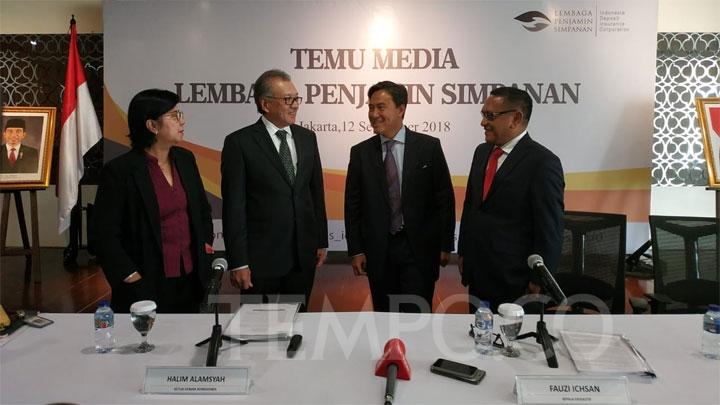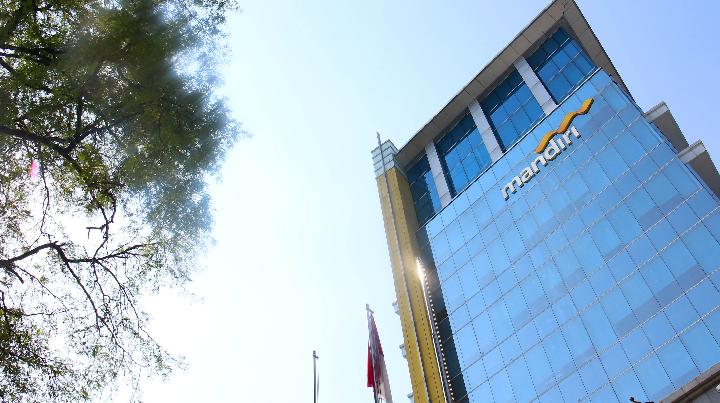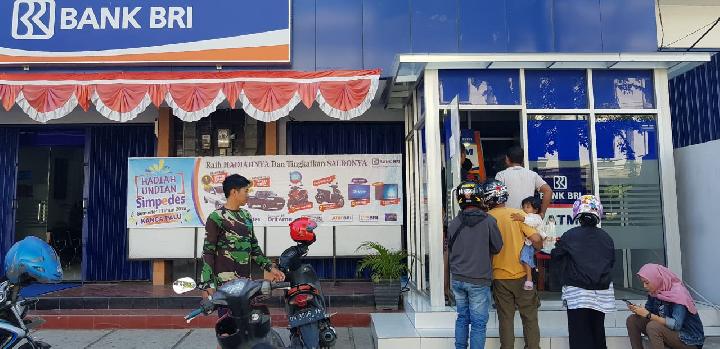BI Governor: We Need Leaders Capable of Lowering Inflation
19 October 2018 22:06 WIB

Not long after he was sworn in to his new job, Bank Indonesia Governor Agus Martowardojo immediately faced serious economic challenges: the highest current account deficit in history and the inflation rate which has increased beyond projections as a result of the rise in subsidized fuel price and shortages of a number of food commodities.
He stressed that his main job was to monitor the monetary situation. Which is why, he explained, he continues to 'campaign', inviting regional executives all over Indonesia to keep inflation down. During the first two quarters in 2013, Jakarta was able to keep the inflation rate for the first time below the national inflation rate.
"If all regional leaders manage their inflation rate well, we would no longer be needed at Bank Indonesia," said Agus.
Last Monday, Agus Marto began his busy week by agreeing to be interviewed by Tempo reporters Agoeng Wijaya, Hermien Y. Kleden, Ali Nur Yasin and Tomi Aryanto at his office. Agus did not seem to have changed much from the time he was finance minister. He remained cool under pressure, careful, yet hard and straight to the point when he feels someone may be undermining monetary stability. Excerpts of the interview:
So, here you are, the new Bank Indonesia governor and the economy plunges to a new low. What happened?
The main cause is the world economic growth which has been revised lower in 2013 and 2014. Strangely, developed countries like the US and a number of European countries as well as Japan, are actually recovering. Whereas developing countries, like China and India, are declining. This indicates that as of four years ago, the economies of developing countries, including Indonesia had not been in a normal condition.
What exactly do you mean by that?
Since 2009 until last May, the US had been giving the developing countries monetary stimulus. The entry of cheap funds for some time into the global financial system caused those countries to be in a normal condition. But they were actually not so.
As a result, the world was shaken in May when the Fed announced it was reducing the stimulus?
Yes, but the market responded excessively, thus causing shockwaves on the world exchange rates, including the rupiah. Yet, that reduction has not even been carried out.
What will happen when the US does cut the stimulus?
If they do it in stages, there won't be too much of an impact. But there may be other alternatives which we might have to look out for, and that's if the reduction is carried out drastically. When that happens, the worst-hit would be the financial section, including banking. We have coordinated with the government, the Financial Services Authority (OJK) and the Savings Guarantee Board (LPS) to be ready to face the worst possible scenario, if capital reversal takes place.
The deadlock in the US Congress over the budget has led to a government shutdown. How will that affect Indonesia?
If the shutdown continues for two weeks, economic growth in the US during the fourth quarter can decline by half a percent. If it still goes on for a month, it can go lower by 1.4 percent. That is why we hope they will agree on the budget soon in the US. The direct impact on Indonesia can be on the export and investment areas.
Can you be more specific?
If the agreement on the budget does not allow the US government to raise its debt ceiling, the impact will be on Indonesian exports and American investments in Indonesia. There might be some impact on the financial account channels and eventually, it may lead to a delay in the plan to lower the stimulus.
To anticipate such crisis, what steps is Bank Indonesia taking?
We will always keep an eye on the stability of the exchange rate, on the availability of reserves and ensuring liquidity. We also need to work with central banks throughout the world or to carry out good communications with the market.
How do you assess the four economic policy packets the government issued to respond to the deficit problem?
The government's policy packet issued on August 23 was aimed at overcoming the economic problem in the short, middle and long term. We welcome it. But their implementation and initiatives must be deepened, particularly the implementation part.
Do you mean the government's policy implementation is not deep enough?
I see areas that need to respond more to the real sectors. Bank Indonesia and fiscal authorities have been sufficiently responsive, but those in the real sector must prepare plans that can overcome structural problems.
What strategic steps need to be taken to push investments?
I hope the government can direct investment in the upstream sector. Up to now, all production efforts use imported goods because there is no upstream industry. Besides, we must invite foreign investors who can export the goods and services, not just use Indonesia as a market. They should also be persuaded to re-invest their profits here. Right now, our trade revenues are in deficit to the tune of US$25-26 billion as a result of foreign investors repatriating their profits back to their countries of origin after three years in Indonesia.























